- Home
- Aharon Appelfeld
Adam and Thomas Page 2
Adam and Thomas Read online
Page 2
“Sometimes it’s a good thing to learn from the birds.” Adam spoke like a craftsman whose skill had succeeded.
“You’re right. From up here you can see better. I have a blanket in my backpack, and I bet you have one, too. We’ll spread one blanket on the branches, and we’ll cover ourselves with the other,” Thomas tried to contribute his part to the initiative.
“A great idea,” said Adam.
They lay down to see whether the nest would bear their burden without caving in.
“Have you ever slept in a treetop before?” Thomas asked.
“No, but I’ve put up a tent with my parents, and we slept in it.”
“When our mothers come to get us, they’ll be amazed at your invention, Adam.”
“It’s already dark. They’ll certainly come in the morning. I’m tired,” said Adam.
As they were closing their eyes, they saw a man running through the forest. “It’s a good thing we’re up here,” said Thomas. “There’s no way of knowing what the runner would do to you.”
“Somebody who’s running is busy running and won’t pay attention to you,” Adam surprised him with his insight.
Then silence prevailed. Here and there an owl screeched, but except for that, not a sound was heard. Adam fell asleep. Thomas couldn’t sleep. He was awake and saw his father and mother before his eyes, and the people who came and went in their house.
Thomas’s father, a tall man, nearsighted like his son, was a high school teacher. His mother taught in elementary school. During the ghetto time, before he was taken to the labor brigade, he continued to teach his students at home, after they were suspended from school. “Study preserves us,” he would reply to everyone who expressed doubt about his efforts. “Particularly at this time, we have to protect our souls,” his father would repeat.
Thomas’s mother made sure he kept at his studies, and Thomas did work hard on arithmetic exercises, he read books, wrote compositions, learned poems by heart, and in the evening his mother would examine him and say, “Excellent. You’ve made good progress.”
All during the long days in the ghetto, Thomas plunged deep in his studies. He heard and knew what was going on around him, but the arithmetic exercises and the reading filled his soul. He didn’t understand that he had to prepare himself for a new life until his mother announced she was taking him to the forest the next day. What would it be like? He couldn’t imagine.
Adam hadn’t studied during the time in the ghetto. He helped his mother, who was working in the communal kitchen. He peeled potatoes and beets, sliced cabbage, and washed pots. At noon a long line stretched next to the kitchen, and Adam helped serve the portions of bread and soup.
Chapter 6
The morning light woke them.
“Our mothers didn’t come to get us,” said Thomas, still drowsy.
“They’ll come, but till they do, we have to fix up the nest. Did you sleep well?”
“I usually sleep deeply, but last night I couldn’t sleep. Too many pictures raced before my eyes.”
“I’m not worried. My mom is stubborn. She keeps her promises,” said Adam.
“My mom is also stubborn and keeps her promises. But why didn’t she come and get us?”
“I think we shouldn’t worry. Worry won’t do us any good.” Adam spoke in a practical tone.
“I had a strange dream,” said Thomas. “It was summer. We were swimming in the river. The sun was bright and pleasant. Then suddenly, without warning, black clouds gathered in the sky, and it started to rain hard. The light summer umbrellas were swept up by the wind and fell into the river. Dad suggested going up to the forest and looking for shelter there. We all made fun of his suggestion. ‘It’s a summer rainstorm, a passing shower, soon the sun will come out again. There’s no reason to hurry.’ Dad was insulted by our mockery, and his spirits fell. A strange dream. They say dreams come to teach us something.” Thomas spoke excitedly.
“I don’t have dreams. Only very rarely.” Adam spoke lightly.
“I dream often, but usually I can’t understand the dream. Sometimes the dream seems real, and sometimes it’s confusion.”
Adam raised his eyes with a faraway look as if he was still attached to his mother and to his schoolbooks.
Thomas was surprised by Adam’s look and said, “Did I say something wrong?”
“No, Thomas. Everything is fine.”
“What are you thinking about?”
“About our nest. We can improve it. We’ll add twigs and leaves. A nest has to be well cushioned, otherwise it will cave in under our weight.”
Strange, Adam isn’t worried. The thought flashed through Thomas’s mind. Maybe he knows something that I don’t. He’s quick. He’s a child of nature. I’m a city creature.
They came down from the tree, washed their faces, drank some water, and looked around. Not a sound could be heard. The forest was covered with delicate points of light, blinking and shimmering.
“Come, let’s have a little meal next to the stream. We still have some sandwiches, vegetables, and fruit,” Adam suggested.
“Excellent idea. I’m hungry.”
Adam climbed up and helped Thomas up, and soon they had sandwiches, fruit, and vegetables. Thomas’s mood improved from minute to minute. Adam gave him a friendly look and said, “The forest is the safest place these days. In the ghetto they snatch up children and grandparents. Here they won’t catch us. We’ll improve our running and tree climbing, and we’ll leap like squirrels.”
“Maybe because I’m nearsighted, and maybe for other reasons, I’m not quick. My running isn’t graceful.” Thomas lost his self-confidence.
“You mustn’t lose hope, Thomas. If you keep practicing, you’ll get better at it.”
“Are we going to stay in the forest for a long time?” Thomas asked.
“As long as we have to, until the ghetto calms down. Maybe the war will be over in the meantime.”
“I’m afraid,” Thomas admitted. “Why am I always afraid?”
“There’s nothing to be afraid of. The forest has everything. We’ll learn how to find the good things in the forest. Yesterday we took the first important step. We built a nest.”
“You say that building the nest was the first step?” Thomas asked.
“That’s right,” said Adam. “When you have a base, you can move forward.”
“Adam, your way of thinking surprises me.”
Chapter 7
They went out to look for berries.
“It’s great to eat berries that you picked yourself,” said Adam.
They didn’t have to go far. Right nearby there was a clearing full of little wild strawberries. First they picked and ate them. Then they took handfuls and went back to sit under the tree.
“What luck,” said Thomas.
“My mom says that God provides food for every creature,” said Adam.
“Is your family religious?”
“We go to synagogue on the holidays.”
“Is a religious person different from a regular one?” Thomas asked.
“I don’t think so,” Adam answered. “My grandpa says everyone was created in the image of God.”
“Can you see God?” Thomas persisted.
“You’re not allowed to see God. You have to do what pleases him.”
“What pleases him?”
“To love your parents. To love your grandparents and people who need help.”
“You surprise me, Adam.”
“How?”
“I didn’t imagine that you went to synagogue. I was sure that only old people went to synagogue.”
They picked some more berries, and Thomas remembered painfully that his mother had promised to come to the forest and get him.
“Our mothers are doing what they can. They’re probably busy hiding our
grandparents,” said Adam.
“True. I have to get over my egotism,” said Thomas.
“Forgive my ignorance. What’s ‘egotism’?” Adam said.
“Loving yourself too much.”
“Thomas, you know a lot. You won’t only be the best in our class, but the best in the school.”
“My father’s the best, not me,” said Thomas, sidestepping the praise Adam showered on him.
“Let’s do something useful. Let’s gather branches and fix up the nest.”
They gathered branches of various sizes. Adam climbed up into the tree, and Thomas handed him what they had collected. Adam spread out the branches and leaves and finally spread a blanket over them.
“Thomas. You won’t recognize our nest. Tonight we’ll sleep like kings,” said Adam from above.
Thomas climbed up carefully and right away he saw: wider, more stable, and pleasant to lie on. They both lay down and stretched out their legs, pleased at the thickness of the nest.
“We’ve hardly been here for a day and a half, and it seems as if we’ve been here for a long time. Do you have the same feeling?” Thomas asked.
“I don’t think about my feelings.”
“You’re lucky,” said Thomas.
“Why?”
“Sometimes feelings are oppressive,” Thomas told him.
While they were talking, they saw a white dog in the distance, borne lightly on long legs. “Hey, beautiful dog,” Adam called out, but the dog didn’t stop; it disappeared.
When he was younger, Thomas wanted to adopt a dog, but his mother refused absolutely. That refusal made his childhood miserable, and every time he went outdoors and saw a puppy, his heart would go out to it. Once he found a puppy in the yard, and after he played with it, he brought it home. When his mother saw the puppy held against his chest, she screamed. Thomas dropped the puppy, but his mother kept screaming, and the puppy ran for its life.
That night, before he went to sleep, after she had read a fairy tale to him, his mother looked at him and said, “I want to apologize.”
“For what, Mom?”
“For not letting you adopt a dog. It’s my fault. When I was a little girl, about your age, there was a sweet puppy in the neighborhood where I grew up, and everybody played with it. One morning the rumor spread that the sweet puppy was infected with rabies, and we were all taken to the hospital for injections. I swore to myself that I’d never touch a dog again. When I saw the puppy up against your chest, I got very frightened. I shouldn’t have screamed so loudly and frightened you. Forgive me, Thomas. I don’t know if you can forgive me now, but I hope that one day you will,” she said and burst into tears.
“Mom, I forgive you now.”
“Thank you. It’s been bothering me all day long.”
Now Thomas saw his mother very clearly, sitting next to him. It seemed as if she were still tormenting herself because she had screamed, and Thomas wanted to repeat, “I forgive you with all my heart.”
“Thomas, don’t forgive me so easily. I don’t deserve it,” she said and disappeared from his sight.
For a long time he expected to see her face again, but it didn’t return.
Chapter 8
“What are you thinking about, Thomas?” Adam asked cautiously.
“About my mom.”
“Did she speak to you?”
“Yes, but it’s complicated. It’s hard to talk about now. I’ll tell you some other time.”
“There’s time,” said Adam calmly.
“Will we stay here for many days?” Thomas was afraid.
“I don’t know. My grandpa says, ‘It’s in the hands of heaven.’”
“I never heard that expression. My dad says: ‘Everything is in man’s hands,’” said Thomas.
“Every house has its own expressions,” said Adam. “Hasn’t the time come to trade sandwiches? I’ll give you mine, and you can give me yours.” Thomas spoke in a lively way.
“Good idea,” said Adam.
“The school year is nearly over. It’s two o’clock, and everybody is going home. Just we two are out in nature. Do you understand what’s happening to us?” Thomas spoke with concern.
“It’s very simple. We’re in hiding.”
“You call the place where we are ‘hiding’?” asked Thomas, emphasizing every word.
“I can’t think of a better name. Our hiding place is big. You can walk around in it, climb trees, and drink water from the stream, but it’s still a hiding place.”
“I have the feeling that since the ghetto, nothing makes sense. They send away the old people. Why are they sending away the old people? Why are they sending away children? What harm did the children do? What harm did the old people do?” Thomas spoke emotionally.
“They’re Jews,” Adam answered quietly.
“Because they’re Jews, they have to be sent away?” “You know, Thomas. People don’t like Jews.”
“I can’t figure that out. Apparently I have to experience and learn more,” said Thomas, and then he stopped talking. He took a bite of Adam’s sandwich and said, “Your sandwich is very tasty. It has black olives.”
Then they climbed down and drank from the stream, picked berries, and remembered the tall, white dog that had run quickly through the forest and disappeared.
“Will it come back?” Thomas wondered.
“I assume so.” Adam used an expression that Thomas used often.
Then, without advance notice, Thomas closed his eyes, curled up, and fell asleep.
Adam watched him in his sleep and was surprised by the speed with which Thomas had passed from the world of wakefulness to the world of slumber. Adam wasn’t idle. He went out to see what else grew in the forest. He didn’t have to go far. Right next to them a cherry tree grew, and it was full of dark fruit. At first he wanted to wake up Thomas and show him the tree, but when he went back and saw how deep his sleep was, he let him be. He went back to the cherry tree, picked a handful, and returned to Thomas, amazed how well he was sleeping.
Chapter 9
Thomas awoke in alarm.
“What’s the matter, Thomas?” Adam came to him. “I was late for school.”
“You had a bad dream. We don’t go to school anymore. We live in the forest.”
Adam showed him the cherries, and Thomas was enthusiastic. “What great cherries.” They sat and ate, enjoying the sweet taste of the black fruit.
“Where did you find the cherry tree?”
“Right nearby.”
“Adam, you have an unusual ability to discover things.”
“I love to find new things.”
“New things don’t come to me, because I’m nearsighted.”
You know how to sleep and dream, Adam wanted to say, but he didn’t, to avoid hurting his feelings.
Adam noticed that Thomas had stopped asking why his mother was late, but when evening fell, Thomas said softly, “Now the pupils in our class are at home doing homework. Only we two are abandoned in the forest.”
Adam sensed that the word “abandoned” was dripping with sorrow and yearning, so he asked, “Why did you say ‘abandoned’?”
“What should I have said? Do you have a better word?”
“We have been sent to learn directly from nature and to grow up.”
“Did our mothers bring us to the forest so we’d grow up?” asked Thomas in a tone that embarrassed Adam slightly.
“That idea just occurred to me now,” said Adam, laughing.
“As far as I know, you don’t start growing up at the age of nine,” said Thomas.
Then they went up to the nest.
“Our nest is well cushioned,” said Adam.
“True. It makes you want to sleep,” Thomas agreed.
The forest air and fatigue wrapped around the two boys,
and they fell asleep.
Thomas dreamed that his mother was sitting on his bed and reading to him from Demian, a book by Hermann Hesse. His mother’s voice, before he fell asleep, was soft and calm, and the story appealed to him. Suddenly Thomas thought to ask his mother, “Why did you send me to the forest? Did you send me so I would grow up?” His mother was upset by his question. “I had no choice. I was afraid they would snatch you up.” “Where are they sending the children and the old people?” “Why do you ask?” “There are various rumors. When will the war be over?” “I don’t know. The moment it’s over, I’ll come and get you. You have to be patient.”
Thomas woke up very early, before sunrise. Adam was still asleep. The clear dream became even brighter, and he saw his mother before his eyes.
Adam woke up and asked, “Why aren’t you asleep?”
“I had a dream, and I guess it woke me up.”
“A good dream?”
“Mom promised she’ll come as soon as the war is over,” Thomas told him.
“When will the war be over?” Adam asked.
“She didn’t tell me in so many words. Dreams always hint, but they never explain.”
Chapter 10
When they came down from the nest, a surprise awaited them. The white dog was standing near them on his tall, thin legs. Adam was glad and knelt down right away, stroking him and asking, “What’s your name, nice dog? My name is Adam, and I’m in the forest with my friend Thomas. I have a dog that I love in town. He’s smaller than you, and his name is Miro.”
The dog was astonished by Adam’s words and petting, and he stood still. It was hard to say whether he was a pet dog or a stray. His fur was smooth, and he wasn’t neglected. If he wasn’t neglected, that was a sign he was a pet. He has had enough to eat, the thought flashed through Adam’s mind.
Adam kept talking to him. He asked about his home, but because the dog didn’t respond, he asked, “Maybe you’re looking for a friend?” He didn’t respond to that question either. He became more and more mute, and Adam realized that the dog didn’t understand human language. The people he lived with didn’t talk to him and weren’t interested in him.

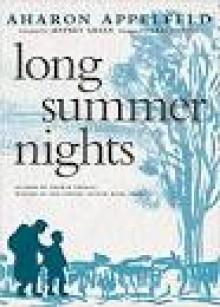 Long Summer Nights
Long Summer Nights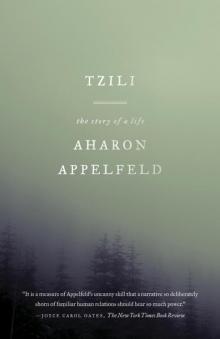 Tzili
Tzili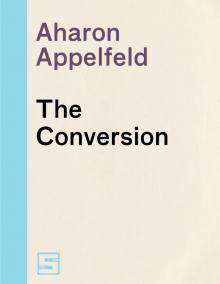 The Conversion
The Conversion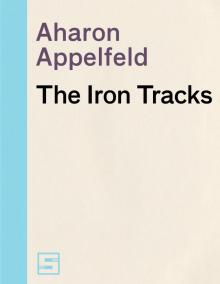 The Iron Tracks
The Iron Tracks All Whom I Have Loved
All Whom I Have Loved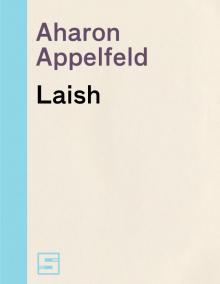 Laish
Laish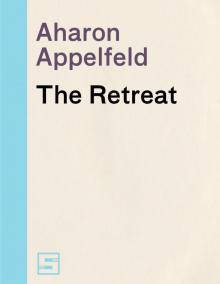 The Retreat
The Retreat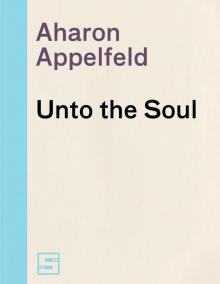 Unto the Soul
Unto the Soul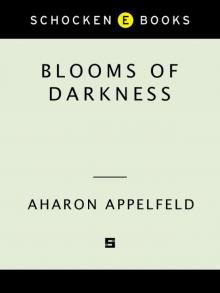 Blooms of Darkness
Blooms of Darkness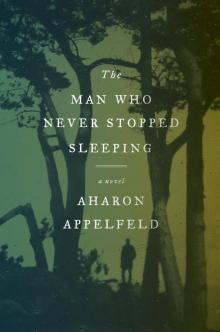 The Man Who Never Stopped Sleeping
The Man Who Never Stopped Sleeping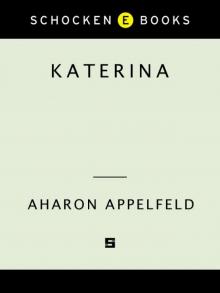 Katerina
Katerina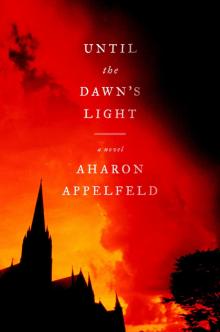 Until the Dawn's Light
Until the Dawn's Light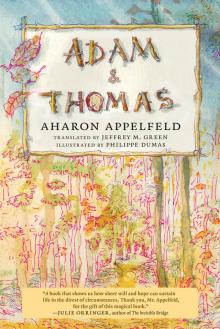 Adam and Thomas
Adam and Thomas Suddenly, Love
Suddenly, Love